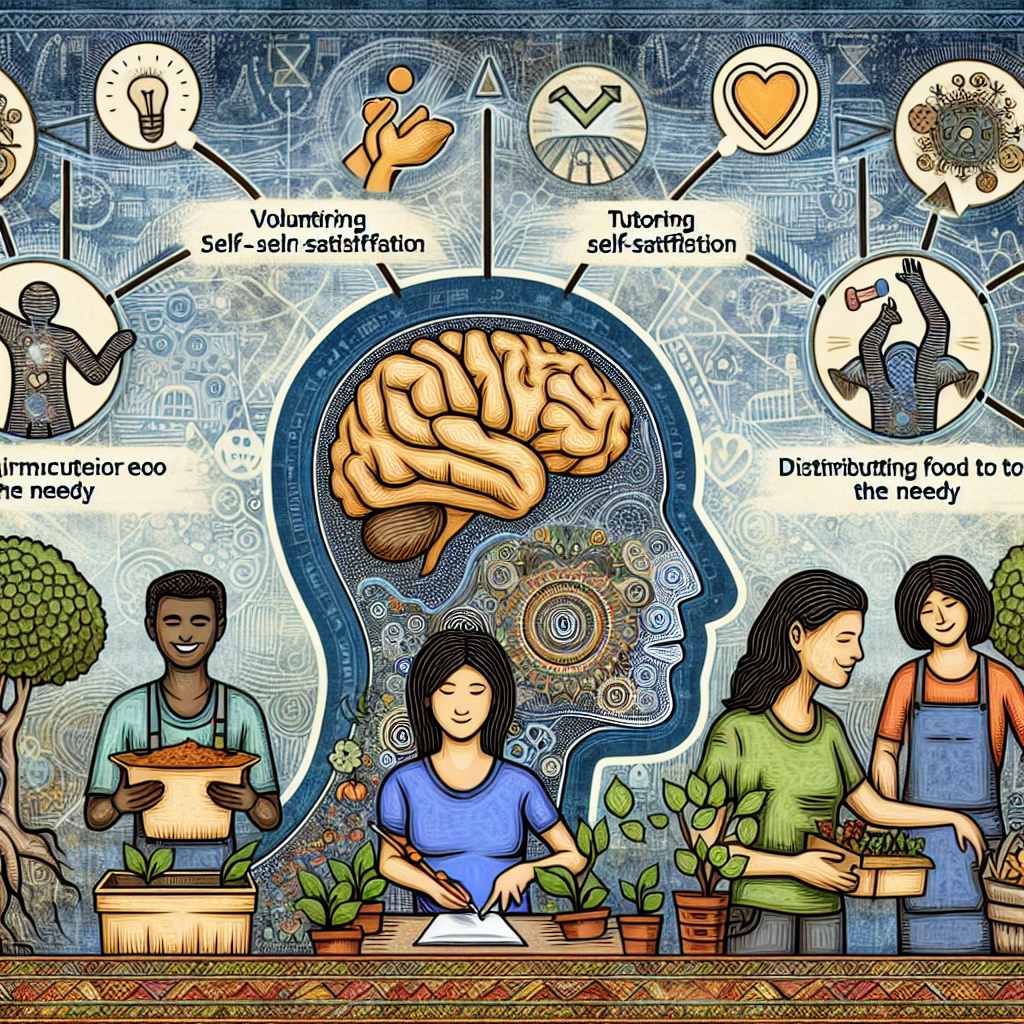The Psychology Behind Why People Volunteer
Volunteering isn’t just about giving up your free time to help others; it’s a complex interplay of psychology, social dynamics, and even a few selfish reasons. So, why do people volunteer? Let’s dive into the fascinating psychology behind it.
Altruism: The Heart of Volunteering
Altruism refers to the selfless concern for the well-being of others. This is perhaps the most straightforward reason why people volunteer. The idea of helping someone less fortunate or contributing to a greater cause triggers feel-good hormones in our brains. Known as the “helper’s high,” this phenomenon can leave volunteers feeling happier and more satisfied.
Think of it as a win-win scenario: someone receives help, and the volunteer gets a mental boost. It’s like the brain’s own BOGO deal!
Social Connections: Building and Strengthening Relationships
Humans are inherently social creatures. Volunteering often provides an excellent platform to meet like-minded individuals and form new friendships. For many, it’s not just about what they can give, but also about what they can gain socially.
- Making new friends
- Strengthening existing relationships
- Expanding social and professional networks
Volunteering can even offer a great networking opportunity, opening doors that might otherwise remain closed. This dual benefit of socializing while contributing to a cause makes volunteering highly appealing.
Skill Development: Learning through Service
Believe it or not, many people volunteer to develop new skills or hone existing ones. Whether it’s leadership, project management, or even public speaking, volunteering often provides scenarios where these skills are needed.
- Boosting career prospects
- Gaining practical experience
- Improving soft skills like communication and teamwork
Volunteering can be a welcome addition to your resume, showing employers that you’re not just a team player, but an active, engaged member of society.
Sense of Purpose: Finding Meaning and Fulfillment
Do you ever feel like you’re just going through the motions? Volunteering can offer a sense of purpose, making life feel more meaningful. Engaging in volunteer work can provide structure, offer goals, and create a sense of accomplishment.
This is especially beneficial for people who might be experiencing life transitions, such as recent retirees or those who are between jobs. In these cases, volunteering can fill a gap and give life renewed meaning.
Civic Responsibility: Giving Back to the Community
For some, the drive to volunteer stems from a sense of civic duty. These individuals see volunteering as a way to give back to the community that has supported them. It’s like paying it forward but without the hidden fees!
Some people also keep up-to-date by subscribing to various Telegram Channels for Political News, like those in Telegram Channels for Political News, to stay informed about community needs and the impact of their volunteer work.
Psychological Well-Being: The Mind-Body Connection
Interestingly, volunteering can also be a remedy for various psychological concerns. Studies have shown that people who volunteer regularly report lower levels of depression and anxiety. This is due in part to the increased social engagement and sense of accomplishment that comes from volunteering.
Who knew that a little bit of selflessness could go such a long way in improving mental health?
Wrap-Up: Volunteering’s Multifaceted Appeal
The psychology behind why people volunteer is multifaceted and combines altruism, social needs, skill development, a sense of purpose, civic duty, and psychological well-being. Whether you’re looking to make new friends, advance your career, or simply make the world a better place, volunteering offers something for everyone.
So, the next time you find yourself with free time and a desire to make a difference, consider volunteering. You might just discover a new passion, meet amazing people, and feel incredible about yourself—all while doing some good in the world.

